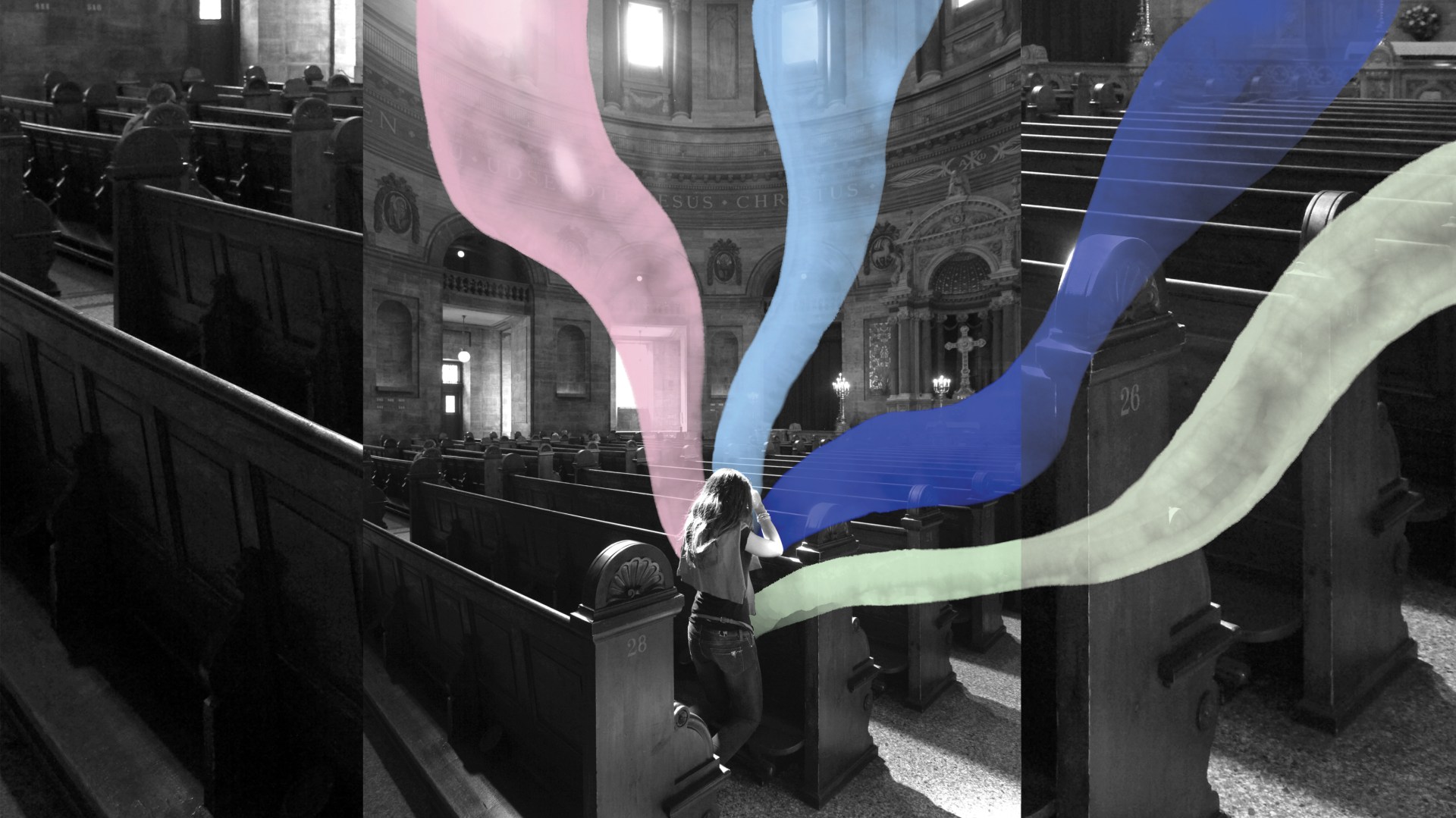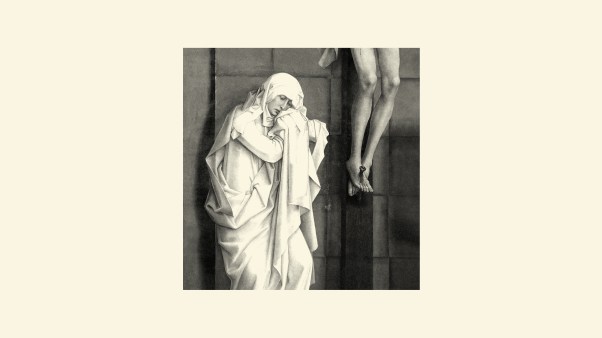When we suffer, we may outwardly appear to be “resting in God,” accepting whatever he gives us. But what looks like rest might actually hide a dangerous and deadly spiritual resignation. The truth is, we’ve lost hope and plastered a Jesus sticker on the face of our despair.
After the death of my infant son Paul, what looked to others like rest was a mask for resignation. I’d begged God to spare my baby’s life, but he died even as I was praying. In the days that followed his death, I planned a funeral, spoke of God’s goodness, and offered words of sound theology—theology that I believed. I said I was resting, trusting, and standing on the promises of God, but internally I was actually turning my face away from God.
I was too ashamed to admit to others, and even to myself, how disappointed I was with God, so I numbed the pain with platitudes that I wanted to believe while I distanced my heart from the Lord. My once-vibrant faith soon drifted into apathy and prayerlessness because I’d lost hope that God was even listening.
Months later, in desperation, I finally cried out to God again. I had nowhere else to go. He met me in my discouragement and drew me back to him. I felt a newfound freedom in being completely open with him, so I began voicing my fears, journaling my questions, and praying through Psalms as I processed my grief. This season of wrestling with God in prayer finally reengaged my heart. Instead of answers, I found rest in God himself and a peace beyond my understanding. My journey of wrestling in prayer amid suffering is what eventually led me out of hopeless resignation and into real trust.
The Reason to Wrestle
Wrestling in prayer is crying out to God, asking for what we need, holding nothing back. It isn’t fighting with God, but it is grabbing hold of him, expecting him to answer, and refusing to let go or look away. Augustine wrote in Confessions, “The best disposition for praying is that of being desolate, forsaken, stripped of everything.” The more desperate we are, the more earnestly and specifically we pray. When we see that only God can change the situation we’re facing, we fall to our knees, determined not to give up until he answers.
When my first husband left our family, I pleaded with God day and night for him to come to repentance. When I was diagnosed with post-polio syndrome, I implored God to prolong and increase my strength. When my daughter was becoming increasingly defiant during adolescence, I asked God to change her heart. I didn’t just ask for these things. I begged—sometimes flat on my face, often with tears, multiple times a day. No one had to remind me. I was desperate for God’s help.
Scripture consistently points us toward this sort of fierce, determined, wrestling prayer. Jacob wrestled with God all night, declaring, “I will not let you go unless you bless me,” and his tenacity earned him a new name—Israel, which means “he strives with God” (Gen. 32:26–28). Hannah cried bitterly to the Lord for a child; after many years of infertility, God gave her a son (1 Sam. 1:9–20). David often grappled with God in prayer, and his psalms are full of urgent and often frantic requests that God answered (Pss. 6, 22, 69).
Jesus commended relentless prayer in his parable of a persistent widow who doggedly cried out to an unjust judge for justice against her adversary (Luke 18:1–8). Because of her continual asking—her willingness to press the matter to the point of annoyance—she was rewarded. Jesus concluded his parable by saying, “And will not God bring about justice for his chosen ones, who cry out to him day and night? Will he keep putting them off? I tell you, he will see that they get justice, and quickly.” God never puts us off. God never grows weary of our requests and will never ignore our pleas. Our cries are always accomplishing something.
Consider what crying means for human infants. It is a natural response to need. Babies who don’t scream when they are hungry or wet have usually been neglected; they’ve learned their sobs are useless and won’t change anything. But when a baby cries, that crying is an instinctive affirmation that someone will respond to their needs. This is the heart behind wrestling in prayer. When we wrestle—in our pain and our need—we are acknowledging that we trust God to hear us and respond to our cries.
Where Things Can Go Wrong
Both wrestling in prayer and resting in prayer can have inherent dangers. The problem lies in wrestling without trust and in resting without wrestling. When we wrestle without trust, we are truthful about ourselves without acknowledging the truth about God. And when we rest without wrestling, we are truthful about God without being truthful about ourselves. Both can lead to hardness of heart.
While the Lord invites us to wrestle in prayer, this does not entitle us to demand the answer we want, as if God owes us and must do our bidding. When people pray with this sort of mindset, unanswered prayer can cause them to turn away from God in anger and hostility, questioning God’s goodness, power, or even existence. Their wrestling has felt pointless, and they walk away disillusioned.
Conversely, the refusal to wrestle with God amid suffering—instead offering up pious words, religious platitudes, and a false outward joy—can often mask a heart that has given up hope and is far from God. This so-called resting in prayer can also be an excuse for spiritual laziness, praying brief and detached prayers with no heart or vitality. These are what Charles Spurgeon called “fingertip prayers” in The Power of Prayer in a Believer’s Life—prayers he describes as “those dainty runaway knocks at the door of mercy,” requests that are more for show or out of obligation without any expectation of an answer.
What we are expecting from God can be the key to discerning true rest in prayer from false rest. Is our rest passively moving us away from God because we’ve given up any hope that he’ll answer? Or is our rest actively drawing us closer to him because deep down we know he always answers with his best, even if we don’t understand it? I’ve experienced both. After Paul died, my “rest” was a front for passive mistrust and hopelessness; but after my first husband left, my rest in God sprang out of active trust and eternal hope.
The Reason to Rest
While the kind of false rest I’ve described draws us further from God, true rest draws us closer. Isaiah 26:3 reminds us, “You will keep in perfect peace those whose minds are steadfast, because they trust in you.” Rest requires actively trusting God, keeping our minds on him.
True rest comes from God and is found in him alone. “Truly my soul finds rest in God,” David declared (Ps. 62:1). Jesus urges us to come to him and find true rest for our souls (Matt. 11:28–29). Resting in God in prayer brings a supernatural peace and inner calm as we quiet our souls before God like a weaned child in his presence (Ps. 131:2).
God’s presence is our rest. The Lord said as much to Moses when he was worried about the future: “My Presence will go with you, and I will give you rest” (Ex. 33:14). When we know the Lord is with us, we can stop worrying about the present or the future and can enter into his rest, trusting that he will both protect us and provide for us. This peace in the Lord’s presence is active—not passive—and is the overflow of choosing to trust, drawing near to God in prayer, and surrendering to his will.
True Rest Comes After Wrestling
Scripture underscores that true rest and peace amid suffering often come from asking and wrestling in prayer. In Philippians 4:6–7, Paul exhorts us to not to be anxious, but instead to pray about everything. It is only after we have poured out our requests before the Lord that his supernatural peace will surround us. Paul knew this from personal experience with suffering; in 2 Corinthians 12:7–10, he pleaded with the Lord three times to remove his thorn in the flesh. God didn’t remove the thorn but showed Paul how his weakness was an opportunity to rest and boast in God’s strength.
In Lamentations 3, Jeremiah cried out to God feeling desolate, bitter, and hopeless. He spoke some of the most anguished and desperate complaints in all of Scripture, saying, “He has besieged me and surrounded me with bitterness and hardship. … Even when I call out or cry for help, he shuts out my prayer. … He dragged me from the path and mangled me and left me without help” (vv. 5, 8, 11). But as Jeremiah remembered God’s character, he dared to hope that God’s love and mercy would deliver him. He declared, “Because of the Lord’s great love we are not consumed, for his compassions never fail. They are new every morning; great is your faithfulness. I say to myself, ‘The Lord is my portion; therefore, I will wait for him’ ” (vv. 22–24). After Jeremiah lamented and wrestled in prayer, he rested.
When we wrestle in prayer with faith, we discover the hidden treasures of God’s grace. It isn’t weak faith that leads us to wrestle and spend sleepless nights in prayer, but faith strong enough to believe that God himself will meet us and answer us, that he is not indifferent to our cries but is rather moving heaven and earth in response to our pleas.In Gethsemane, the disciples fell asleep, unaware of what was about to happen. Their resting was born out of ignorance and weakness. Meanwhile, Jesus was wrestling with God, praying in such “anguish” that “his sweat was like drops of blood falling to the ground” (Luke 22:44) as he asked his Father to remove the impending suffering. After asking, Christ willingly accepted the Father’s answer, trusting God would do what was best.
Biblical rest in suffering begins with wrestling. We cannot fully surrender to God in prayer, resting in him, without first engaging in the fight for faith. When we wrestle in prayer, we trust that God is accomplishing something through our prayers, changing us in the process, and inviting us to a life-changing encounter with him. We wrestle to see our prayers answered, and we wrestle when our prayer requests are denied—both of which will eventually give way to true rest in the Lord. This active rest is what our heart longs for; as Augustine said, “You have made us for yourself, O Lord, and our heart is restless until it rests in you.”
Vaneetha Rendall Risner is a writer and speaker. Her latest book is Walking Through Fire: A Memoir of Loss and Redemption.











